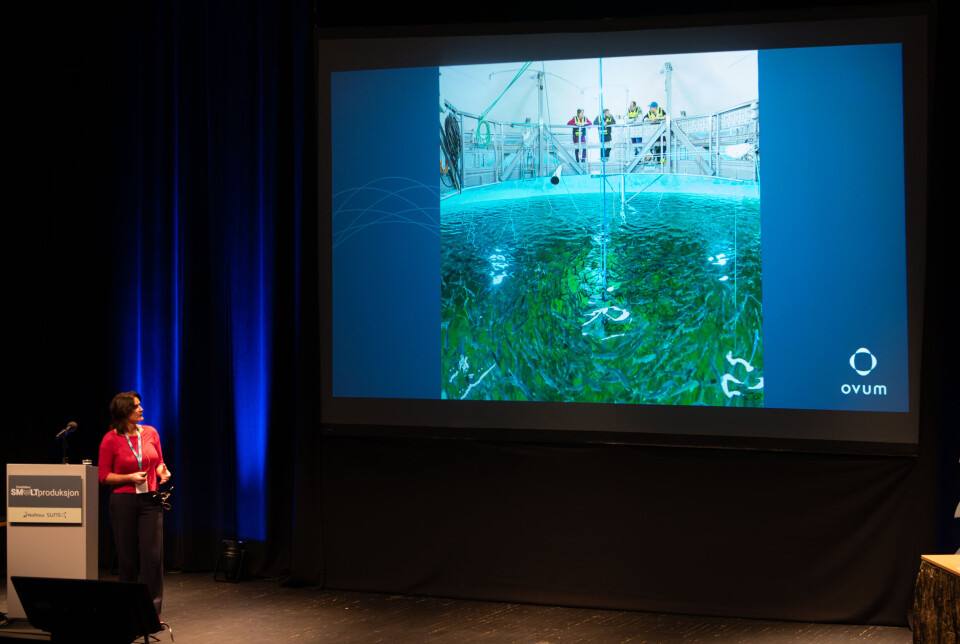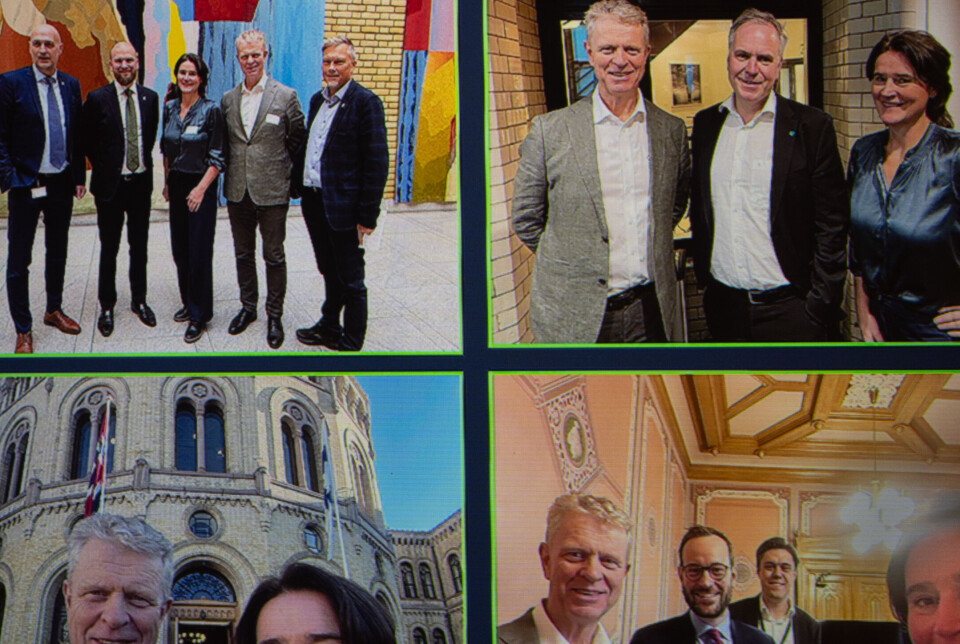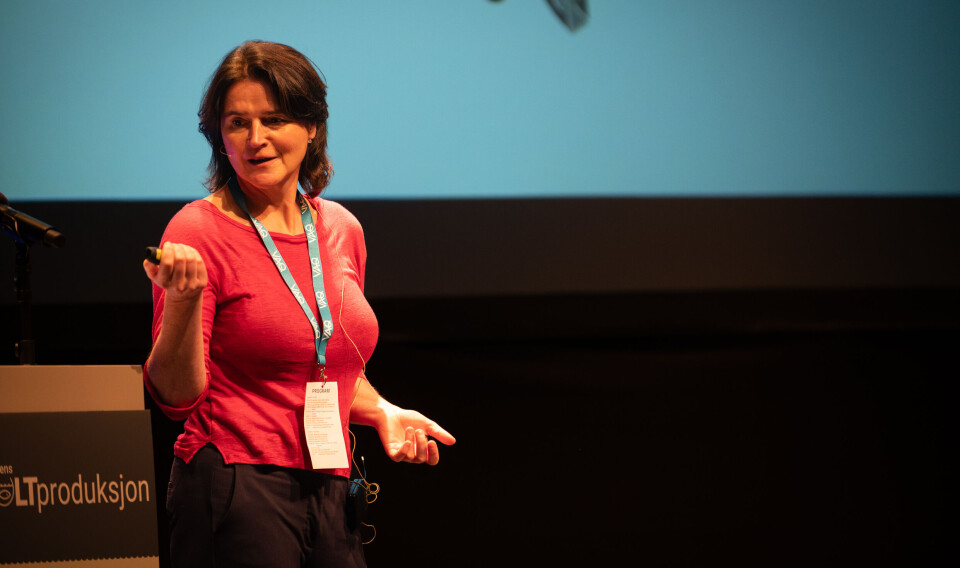LandbasedAQ.com

Closed containment company: 'We have ended up in a vacuum'
'We have an industry sitting on the fence because they are waiting for a regulation that never comes, as well as an existing regulation that promotes technology non-neutrality; it is a real problem for us.'
Siri Vike, fish health and welfare director at Norwegian floating closed containment company Ovum Aqua, spoke at the Nofima Smolt Conference in Sunndalsøra earlier this month about experiences from production in its 'Egg' production unit. However, she also discussed several regulatory challenges that have now resulted in manufacturer Herde Composite and operator Ovum having to both lay off and furlough employees.
Delayed regulations
The day before she spoke at the conference, Vike and several others from Ovum had been at the Storting (Norwegian Parliament) presenting their concerns and frustrations.
One issue was about Norway's proposed flexibility scheme, which would offer more allowed biomass production in return for reduce impact on the environment.
"I both hope and believe it will come now, and that we will see something about a regular permit being converted into two or three closed permits," Vike told the conference.
"The regulation should have come three years ago, then it should have come last year as part of the ground rent agreement (Editor's note: a 25% extra tax on salmon produced in the sea), and now it has finally been decided by the Parliament that it should come this year. I really hope it does. Because what is happening now is that customers and investors are sitting on the fence waiting for the carrot that is supposed to come someday. Customers and investors do nothing until they know what to expect, it's a real vacuum and a real problem for us," she said.
At this point, the decision about layoffs and furloughs in the company was not known.
Technology neutral
Her other major concern was that she, along with her colleagues, had been at the Parliament to present their view on what they call technology neutrality.

"If I am a land-based breeder and decide that we should produce 7,800 tonnes of post-smolt, then I need ten licences. At sea, these cost NOK 200 million each. On land, you thus get a security worth NOK 2 billion from the state and the state says it will take 22% tax on the profit.
"If I am to produce 7,800 tonnes of post-smolt at sea instead, in a floating, closed facility, then I must borrow NOK 2 billion, and then the state says it will take 47% tax on the profit (Editor's note: 22% profit tax plys 25% ground rent tax).
Vike believes this creates a heavy bias towards land-based technology.
"Who would you as an investor bet on, would you bet on the one with a security worth two billion, or the one who has a loan of the same amount? Politicians say they want technology neutrality, but that is not the case. This is also a challenge for us.
"It's no wonder that knolls and islands are being blasted out (for land-based fish farms) with such an incentive," she added.
Animal welfare as a sustainability goal
A third frustration presented to the parliamentarians was related to fish and animal welfare.
"Many actors in the industry receive awards related to sustainability. And many of them receive it because fish welfare and health are not part of the equation. If you look at the 17 sustainability goals of the UN, animal welfare is not part of them.
Vike and Ovum have therefore launched a sustainability goal no. 18.
"We have been so bold as to create one we have called animal welfare, because we believe it is missing," she stated.













